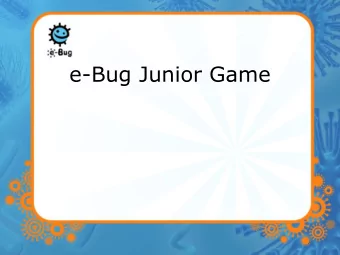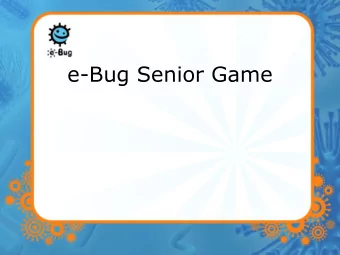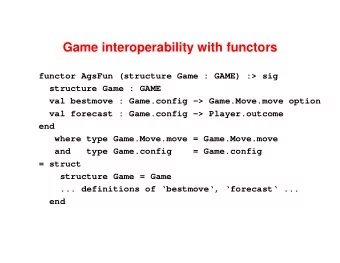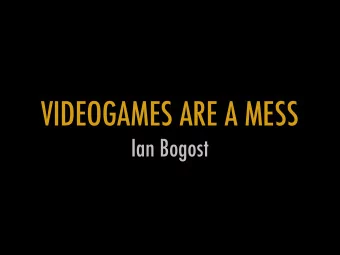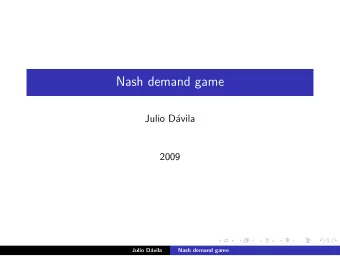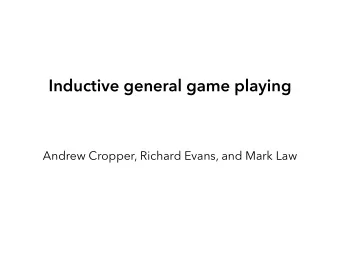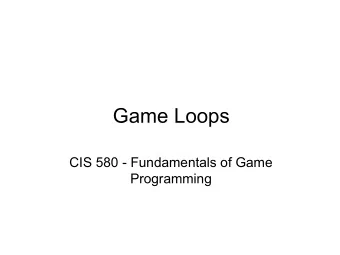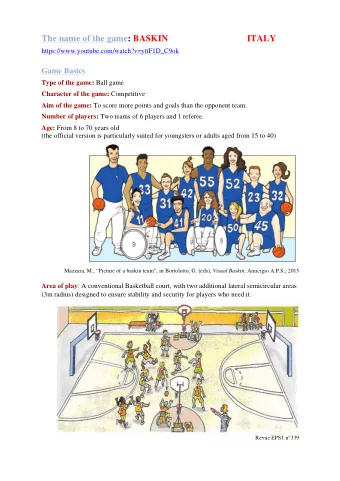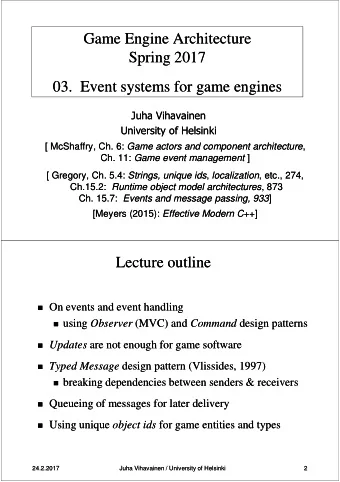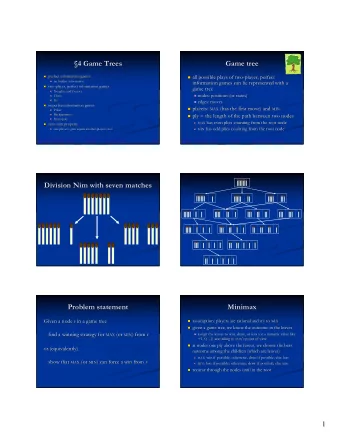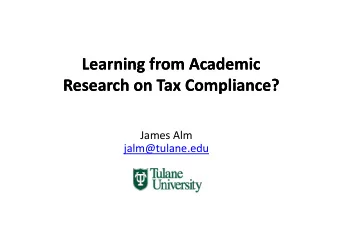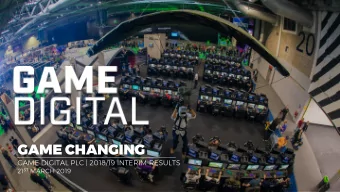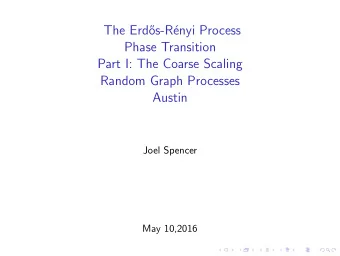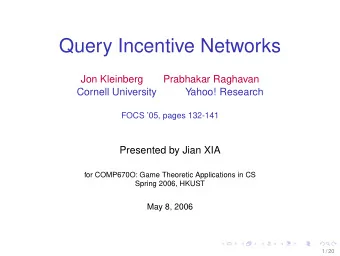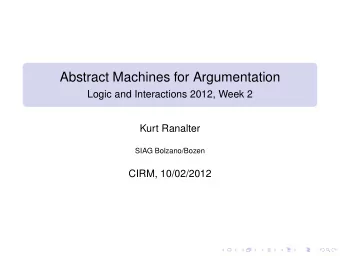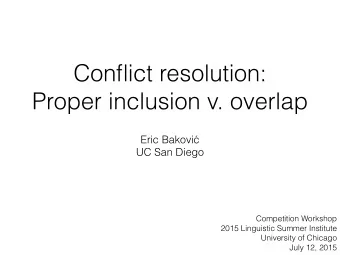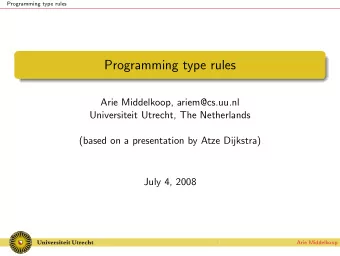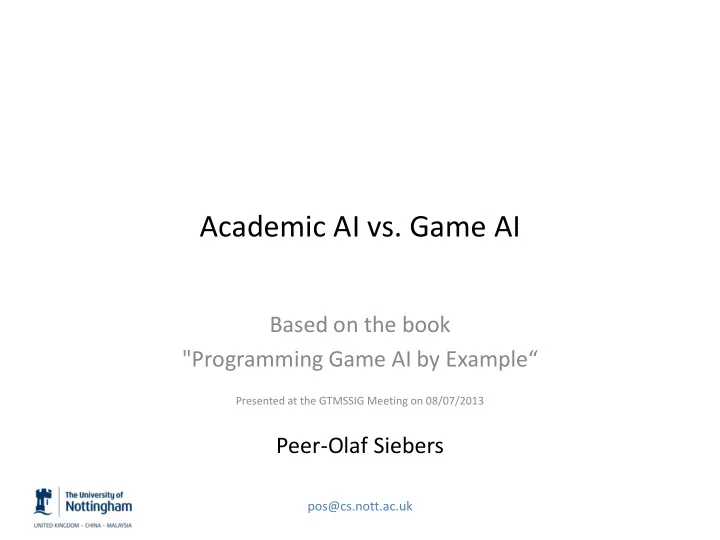
Academic AI vs. Game AI Based on the book "Programming Game AI - PowerPoint PPT Presentation
Academic AI vs. Game AI Based on the book "Programming Game AI by Example Presented at the GTMSSIG Meeting on 08/07/2013 Peer-Olaf Siebers pos@cs.nott.ac.uk Academic AI vs. Game AI Academic researchers: Try to solve a problem
Academic AI vs. Game AI Based on the book "Programming Game AI by Example“ Presented at the GTMSSIG Meeting on 08/07/2013 Peer-Olaf Siebers pos@cs.nott.ac.uk
Academic AI vs. Game AI • Academic researchers: Try to solve a problem optimally with less emphasis on hardware and time limitations – Strong AI: Concerns itself with trying to create systems that mimic human thought processes – Weak AI: Concerns itself with applying AI technologies to the solution of real world problems • Games: Programmers have to work with limited resources This also applies to ABS in OR but perhaps not to ABS in Economics 2
Game AI • Game AI must be entertaining and to achieve this must often be designed to be suboptimal (natural). • To be enjoyable Game AI must put up a good fight but loose more often than win. • The goal is to design agents that provide the illusion of intelligence, nothing more. • It has also been shown that a player's perception of the intelligence of a game agent can be considerably enhanced by providing the player with some visual and/or auditory clues as to what the agent is thinking about 3
Finite State Machines • Finite State Machines (FSM) = State-Driven Agent Design Can we use this term to distinguish different types of agents (e.g. OR and Economics agents)? Elsa Bob
Finite State Machines • Advantages – Quick and easy to code – Easy to debug: Agent behaviour is broken down into manageable chunks add tracer code to each state – Have little computer overhead: As they follow hard-coded rules – They are intuitive: We think about things being in one state or another; it is easy to break down an agent's behaviour into a number of states and to create the rules of manipulating them; can be designed with or by non-programmers – They are flexible: Can easily be adjusted and tweaked - by adding new states and rules; they also provide a solid backbone with which you can combine with other techniques such as fuzzy logic and neural networks
Discussion 6
References • Buckland (2005) Programming Game AI by Example 7
Recommend
More recommend
Explore More Topics
Stay informed with curated content and fresh updates.
